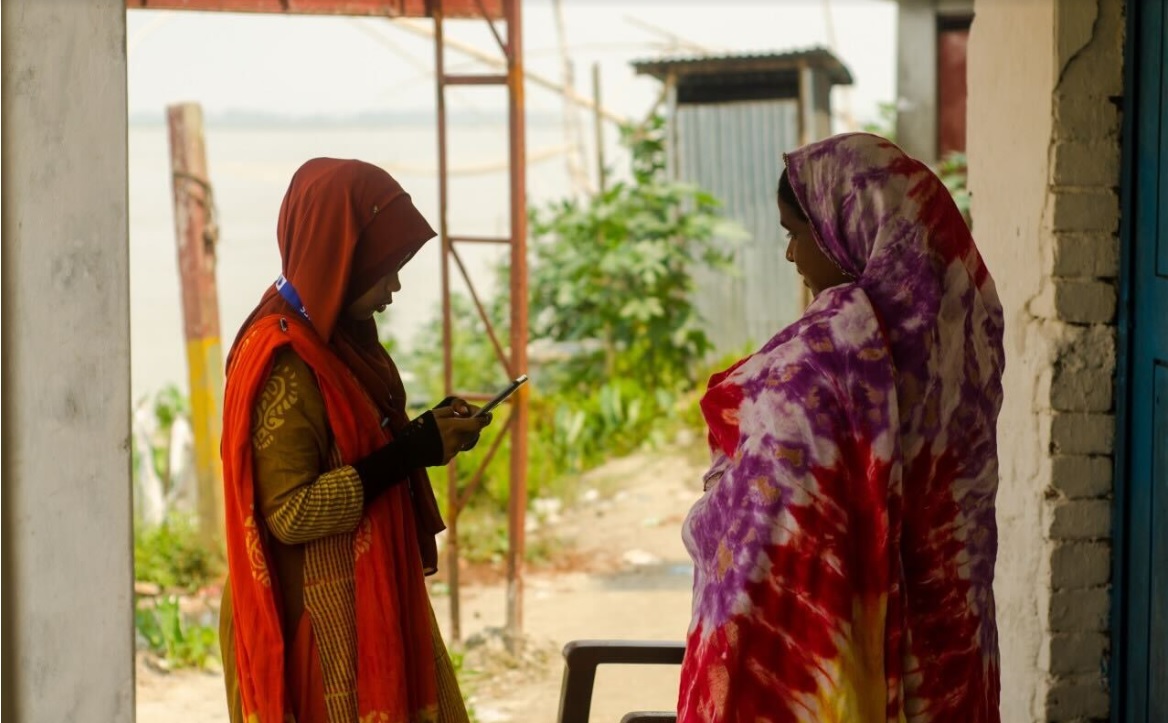June 1, 2022
A baseline study is being carried out by RIMES in Bangladesh's most flood-prone areas of Gaibandha district that will help identify the needs and gaps of communities in the existing flood early warning system.
Prior to this, the baseline study was successfully carried out in several Upazilas of Jamalpur and Kurigram district. The study will help authorities understand flood early warning user needs and vulnerabilities, and scope of improvement of generation and dissemination of localized flood early warning. It will also be helpful in measuring change and impact over time, where results from the baseline will be compared with periodic post monsoon surveys done at the end of each monsoon period.
The study is being carried out from both qualitative and quantitative perspectives. A total of 1425 households are to be interviewed by using a portable electronic device and the digital data collection app called KOBO Toolbox with a structured questionnaire. Besides the household survey, 19 FGDs and 31 KIIs with the professionals of Bangladesh Water Development Board (BWDB), Local Government Engineering Department (LGED) and Department Of Disaster Management (DDM) will also be conducted under the baseline study.
The overall assessment is a part of the project 'Development of Local Flood Early Warning and Dissemination System' under the PROVATi3 Project currently being implemented by DDM in Bangladesh with funding from the International Fund for Agricultural Development (IFAD) and with technical support from RIMES in Bangladesh's most flood-prone areas of Kurigram, Gaibandha, and Jamalpur. The project aims to generate tailored flood early warning and expand the flood warning to its’ last-mile users.
